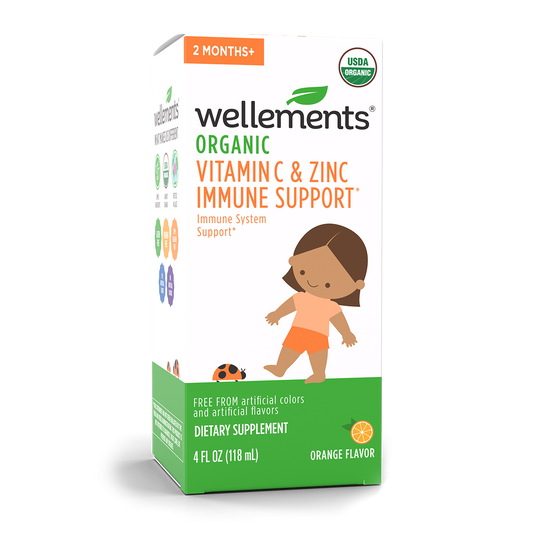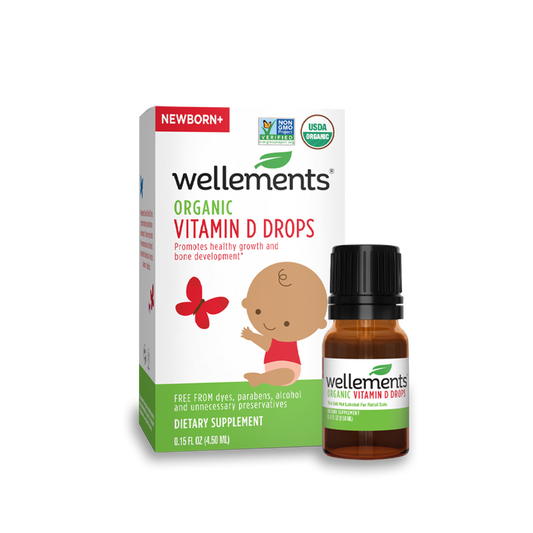Vitamin D vs. Vitamin C: What Are the Benefits?
| updated:Share

Your immune system protects you from pathogens that cause disease; it requires the proper nutritional support to perform effectively. The two most well-established and supportive micronutrients your immune system needs are vitamin C and vitamin D. It could prove impossible, however, to obtain all of the needed vitamin amounts solely from food. Vitamin supplements can fill the gap.
What Is the Difference Between Vitamins C and D?
Vitamin C falls into the water-soluble category. After your body uses the amount it needs, it won’t store the leftover portion and the excess leaves through urination. You need more than a once-a-day intake regimen to ensure you have enough in your system for optimal effectiveness.
Vitamin D belongs in the fat-soluble category; your body will store it in the liver and fatty tissues. Taking a vitamin D supplement with a meal containing dietary fat also increases absorption.

How Does Vitamin C Work?
Vitamin C is an effective antioxidant and protects against the damage harmful oxidants cause. Also known as free radicals, damage-causing oxidant molecules are unstable and interact with the body’s cells and DNA. The damaged cells and genetic material make it easier for many diseases and harmful medical conditions to develop.
Vitamin C can block the effects of the oxidants entering the body through environmental pollutants and toxins. It also reduces the harmful effects of the oxidants generated through normal cellular metabolism.
4.0 /
5.0
(10)
10
total reviews
Vitamin C & Zinc Immune Support
Sale price
$14.99
How Does Vitamin D Work?
One of the main properties of vitamin D is its ability to help maintain strong and healthy bones. Calcium is essential to maintaining the body’s skeletal structure, but lacking vitamin D, the body may only absorb less than half of the amount of calcium needed. Vitamin D, however, can double the digestive system’s ability to absorb calcium.
Vitamin D can also help the body absorb and maintain the necessary dietary phosphorus. In addition to serving as an essential component in the body’s skeletal structure, phosphorus assists in maintaining and growing cells and tissues. The production of DNA and the body’s ability to use and store energy also require phosphorus.
4.2 /
5.0
(89)
89
total reviews
Vitamin D Drops
Sale price
$11.99
Benefits of Taking Both Vitamin C & D
Situations can occur where physical or emotional stress taxes the body’s immune system and renders it more susceptible to disease. Under these circumstances, you could need much more than the amounts of vitamins C and D obtainable from foods. Regardless of your lifestyle, your immune system will benefit from the positive effects of vitamins C and D.
Vitamin C’s immune system support makes it a critical player in defending the body against pathogens such as viruses and bacteria. Because vitamin D modulates a wide range of immune system responses, it works with vitamin C to make the body more effective in combating infections. Vitamin D also helps the nervous and musculoskeletal systems function correctly.
Risks of Low Vitamin D & C
In addition to reducing the immune system’s effectiveness, a vitamin D deficiency can lead to osteoporosis, a bone disease that causes spinal deformities and fractures. Muscle weakness is another prominent symptom. Fatigue and depression can also accompany vitamin D deficiency when overactive parathyroid glands attempt to remedy low calcium levels.
The immediate risk of vitamin C deficiency is a weak or ineffective immune system response to an infection. Wounds could also take longer to heal, and the body may not absorb enough dietary iron. A lessened degree of vitamin C’s antioxidant properties could allow harmful free radicals to damage cells and DNA.
In an ideal world, while enjoying a perfect lifestyle, you may obtain all the nutrients you need from your diet. This does not, however, reflect a likely scenario for most individuals. Take advantage of the essential nutrients' benefits through preservative-free and organically pure supplements you can trust.
Sources:
https://www.cnbc.com/2022/01/30/the-4-vitamins-and-supplements-this-doctor-takes-every-day-for-a-strong-immune-system.html
https://medlineplus.gov/ency/article/002399.htm
https://www.health.harvard.edu/staying-healthy/vitamin-d-and-your-health-breaking-old-rules-raising-new-hopes
https://www.health.harvard.edu/staying-healthy/understanding-antioxidants
https://www.hsph.harvard.edu/nutritionsource/vitamin-d/
https://www.ncbi.nlm.nih.gov/pmc/articles/PMC8909570/
https://www.mountsinai.org/health-library/supplement/phosphorus
https://takecareof.com/articles/can-you-take-vitamin-c-and-d-together
https://www.ncbi.nlm.nih.gov/pmc/articles/PMC5707683/
https://my.clevelandclinic.org/health/diseases/15050-vitamin-d-vitamin-d-deficiency
https://www.hyperparathyroidmd.com/hyperparathyroidism-vitamin-d/
https://www.pharmacytimes.com/view/vitamin-c-for-improved-wound-healing
https://www.ndtv.com/health/iron-deficiency-immunity-and-4-other-reasons-why-vitamin-c-is-important-2245053




